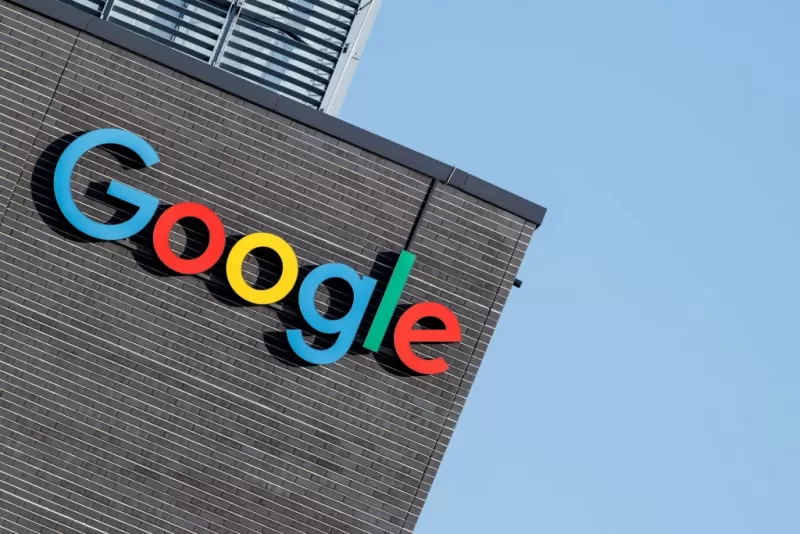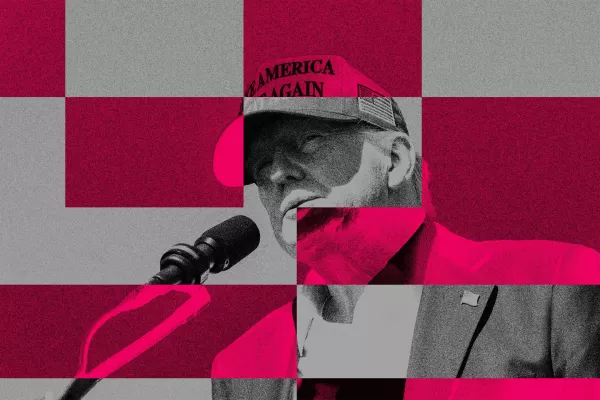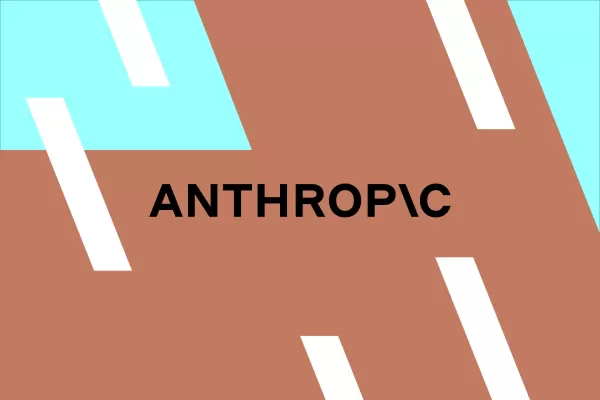Google Proposes Relaxed AI Copyright, Export Rules

Google, hot on the heels of OpenAI, has thrown its hat into the ring with a policy proposal in response to the Trump administration's call for a national "AI Action Plan." The tech giant is pushing for relaxed copyright restrictions on AI training and "balanced" export controls that "protect national security while enabling U.S. exports and global business operations."
In their document, Google argues that "the U.S. needs to pursue an active international economic policy to advocate for American values and support AI innovation internationally." They're not shy about pointing out that "for too long, AI policymaking has paid disproportionate attention to the risks, often ignoring the costs that misguided regulation can have on innovation, national competitiveness, and scientific leadership — a dynamic that is beginning to shift under the new Administration."
One of the more eyebrow-raising recommendations from Google is about using IP-protected material. They're all for "fair use and text-and-data mining exceptions," which they say are "critical" to AI development and AI-related scientific innovation. Just like OpenAI, Google wants to make it legal for them and their competitors to train AI on publicly available data — including copyrighted stuff — without too many strings attached.
"These exceptions allow for the use of copyrighted, publicly available material for AI training without significantly impacting rightsholders," Google explains, "and avoid often highly unpredictable, imbalanced, and lengthy negotiations with data holders during model development or scientific experimentation."
Now, Google's no stranger to controversy here. They've been training models on public, copyrighted data and are currently tangled up in lawsuits with data owners who claim Google didn't notify or compensate them beforehand. U.S. courts haven't decided yet if fair use doctrine will save AI developers from these IP battles.
In their AI policy proposal, Google also takes a swipe at certain export controls under the Biden administration, saying they "may undermine economic competitiveness goals" by "imposing disproportionate burdens on U.S. cloud service providers." This is a bit different from what Microsoft said in January — they were pretty sure they could "comply fully" with the rules.
The export rules aim to limit advanced AI chips in countries the U.S. isn't too fond of, but there are exemptions for trusted businesses looking to get their hands on large clusters of chips.
Google's also calling for "long-term, sustained" investments in domestic R&D, pushing back against recent federal efforts to cut spending and nix grant awards. They want the government to release datasets that could help with commercial AI training and fund "early-market R&D" while making sure computing and models are "widely available" to scientists and institutions.
With the U.S. having a bit of a regulatory mess thanks to a patchwork of state AI laws, Google's urging the government to pass federal legislation on AI, including a comprehensive privacy and security framework. By early 2025, there are already 781 pending AI bills in the U.S., according to an online tracking tool.
Google's also warning the U.S. government against imposing what they see as overly strict obligations around AI systems, like usage liability obligations. They argue that in many cases, the developer of a model "has little to no visibility or control" over how it's used and shouldn't be held responsible for misuse.
Historically, Google's been against laws like California's defeated SB 1047, which spelled out what precautions AI developers should take before releasing a model and when they might be held liable for any harm caused by it.
"Even in cases where a developer provides a model directly to deployers, deployers will often be best placed to understand the risks of downstream uses, implement effective risk management, and conduct post-market monitoring and logging," Google points out.
Google's also not a fan of disclosure requirements like those being considered by the EU, calling them "overly broad." They want the U.S. government to oppose transparency rules that would require "divulging trade secrets, allow competitors to duplicate products, or compromise national security by providing a roadmap to adversaries on how to circumvent protections or jailbreak models."
More and more countries and states are passing laws that require AI developers to spill the beans on how their systems work. California's AB 2013, for example, makes companies developing AI systems publish a high-level summary of the datasets they used for training. In the EU, once the AI Act comes into force, companies will have to give model deployers detailed instructions on the operation, limitations, and risks associated with the model.
Related article
 US to Sanction Foreign Officials Over Social Media Regulations
US Takes Stand Against Global Digital Content Regulations
The State Department issued a sharp diplomatic rebuke this week targeting European digital governance policies, signaling escalating tensions over control of online platforms. Secretary Marco
US to Sanction Foreign Officials Over Social Media Regulations
US Takes Stand Against Global Digital Content Regulations
The State Department issued a sharp diplomatic rebuke this week targeting European digital governance policies, signaling escalating tensions over control of online platforms. Secretary Marco
 Anthropic Resolves Legal Case Over AI-Generated Book Piracy
Anthropic has reached a resolution in a significant copyright dispute with US authors, agreeing to a proposed class action settlement that avoids a potentially costly trial. The agreement, filed in court documents this Tuesday, stems from allegations
Anthropic Resolves Legal Case Over AI-Generated Book Piracy
Anthropic has reached a resolution in a significant copyright dispute with US authors, agreeing to a proposed class action settlement that avoids a potentially costly trial. The agreement, filed in court documents this Tuesday, stems from allegations
 Google Relaunches AI-Powered 'Ask Photos' with Improved Speed Features
Following a temporary halt in testing, Google is relaunching its AI-driven "Ask Photos" search functionality in Google Photos with significant enhancements. Powered by Google's Gemini AI technology, this innovative feature helps users locate specific
Comments (43)
0/200
Google Relaunches AI-Powered 'Ask Photos' with Improved Speed Features
Following a temporary halt in testing, Google is relaunching its AI-driven "Ask Photos" search functionality in Google Photos with significant enhancements. Powered by Google's Gemini AI technology, this innovative feature helps users locate specific
Comments (43)
0/200
![KevinDavis]() KevinDavis
KevinDavis
 August 23, 2025 at 3:01:19 AM EDT
August 23, 2025 at 3:01:19 AM EDT
Google's pushing for looser AI copyright rules? Bold move, but I wonder if it’s a sneaky way to dodge accountability. Feels like Big Tech’s saying, 'Let us use whatever we want!' 😅 Curious how this’ll play out with creators fighting back.


 0
0
![DouglasMitchell]() DouglasMitchell
DouglasMitchell
 August 18, 2025 at 5:01:05 PM EDT
August 18, 2025 at 5:01:05 PM EDT
¡Vaya, Google y OpenAI pidiendo menos restricciones para la IA! Me parece curioso que busquen libertad para entrenar modelos, pero ¿y los creadores de contenido? Creo que deberían equilibrar innovación con derechos de autor. 🧐


 0
0
![AnthonyHernández]() AnthonyHernández
AnthonyHernández
 July 27, 2025 at 9:20:54 PM EDT
July 27, 2025 at 9:20:54 PM EDT
Google's push for looser AI copyright rules is intriguing, but it feels like a double-edged sword. Sure, it could spark innovation, but what about creators getting shortchanged? 🤔 I wonder how they'll balance that with national security on exports.


 0
0
![JonathanNelson]() JonathanNelson
JonathanNelson
 April 20, 2025 at 2:24:23 AM EDT
April 20, 2025 at 2:24:23 AM EDT
Предложение Google по авторским правам на ИИ и правилам экспорта звучит интересно, но я не уверен, как это будет работать на практике. Всё про 'ослабление' того и 'баланс' этого. Посмотрим, поможет ли это или только усложнит ситуацию. 🤔


 0
0
![WillieHernández]() WillieHernández
WillieHernández
 April 19, 2025 at 5:12:07 AM EDT
April 19, 2025 at 5:12:07 AM EDT
GoogleのAI著作権と輸出規制の提案は興味深いけど、実際どうなるかわからないね。「緩和」だの「バランス」だのって言ってるけど、役立つのかそれとももっと複雑になるのか、見てみないとね。🤔


 0
0
![DouglasPerez]() DouglasPerez
DouglasPerez
 April 19, 2025 at 2:37:41 AM EDT
April 19, 2025 at 2:37:41 AM EDT
La propuesta de Google sobre derechos de autor de IA y reglas de exportación suena interesante, pero no estoy seguro de cómo se desarrollará. Todo es sobre 'relajado' esto y 'equilibrado' aquello. Supongo que veremos si ayuda o solo complica más las cosas. 🤔


 0
0

 US to Sanction Foreign Officials Over Social Media Regulations
US Takes Stand Against Global Digital Content Regulations
The State Department issued a sharp diplomatic rebuke this week targeting European digital governance policies, signaling escalating tensions over control of online platforms. Secretary Marco
US to Sanction Foreign Officials Over Social Media Regulations
US Takes Stand Against Global Digital Content Regulations
The State Department issued a sharp diplomatic rebuke this week targeting European digital governance policies, signaling escalating tensions over control of online platforms. Secretary Marco
 Anthropic Resolves Legal Case Over AI-Generated Book Piracy
Anthropic has reached a resolution in a significant copyright dispute with US authors, agreeing to a proposed class action settlement that avoids a potentially costly trial. The agreement, filed in court documents this Tuesday, stems from allegations
Anthropic Resolves Legal Case Over AI-Generated Book Piracy
Anthropic has reached a resolution in a significant copyright dispute with US authors, agreeing to a proposed class action settlement that avoids a potentially costly trial. The agreement, filed in court documents this Tuesday, stems from allegations
 Google Relaunches AI-Powered 'Ask Photos' with Improved Speed Features
Following a temporary halt in testing, Google is relaunching its AI-driven "Ask Photos" search functionality in Google Photos with significant enhancements. Powered by Google's Gemini AI technology, this innovative feature helps users locate specific
Google Relaunches AI-Powered 'Ask Photos' with Improved Speed Features
Following a temporary halt in testing, Google is relaunching its AI-driven "Ask Photos" search functionality in Google Photos with significant enhancements. Powered by Google's Gemini AI technology, this innovative feature helps users locate specific
 August 23, 2025 at 3:01:19 AM EDT
August 23, 2025 at 3:01:19 AM EDT
Google's pushing for looser AI copyright rules? Bold move, but I wonder if it’s a sneaky way to dodge accountability. Feels like Big Tech’s saying, 'Let us use whatever we want!' 😅 Curious how this’ll play out with creators fighting back.


 0
0
 August 18, 2025 at 5:01:05 PM EDT
August 18, 2025 at 5:01:05 PM EDT
¡Vaya, Google y OpenAI pidiendo menos restricciones para la IA! Me parece curioso que busquen libertad para entrenar modelos, pero ¿y los creadores de contenido? Creo que deberían equilibrar innovación con derechos de autor. 🧐


 0
0
 July 27, 2025 at 9:20:54 PM EDT
July 27, 2025 at 9:20:54 PM EDT
Google's push for looser AI copyright rules is intriguing, but it feels like a double-edged sword. Sure, it could spark innovation, but what about creators getting shortchanged? 🤔 I wonder how they'll balance that with national security on exports.


 0
0
 April 20, 2025 at 2:24:23 AM EDT
April 20, 2025 at 2:24:23 AM EDT
Предложение Google по авторским правам на ИИ и правилам экспорта звучит интересно, но я не уверен, как это будет работать на практике. Всё про 'ослабление' того и 'баланс' этого. Посмотрим, поможет ли это или только усложнит ситуацию. 🤔


 0
0
 April 19, 2025 at 5:12:07 AM EDT
April 19, 2025 at 5:12:07 AM EDT
GoogleのAI著作権と輸出規制の提案は興味深いけど、実際どうなるかわからないね。「緩和」だの「バランス」だのって言ってるけど、役立つのかそれとももっと複雑になるのか、見てみないとね。🤔


 0
0
 April 19, 2025 at 2:37:41 AM EDT
April 19, 2025 at 2:37:41 AM EDT
La propuesta de Google sobre derechos de autor de IA y reglas de exportación suena interesante, pero no estoy seguro de cómo se desarrollará. Todo es sobre 'relajado' esto y 'equilibrado' aquello. Supongo que veremos si ayuda o solo complica más las cosas. 🤔


 0
0





























